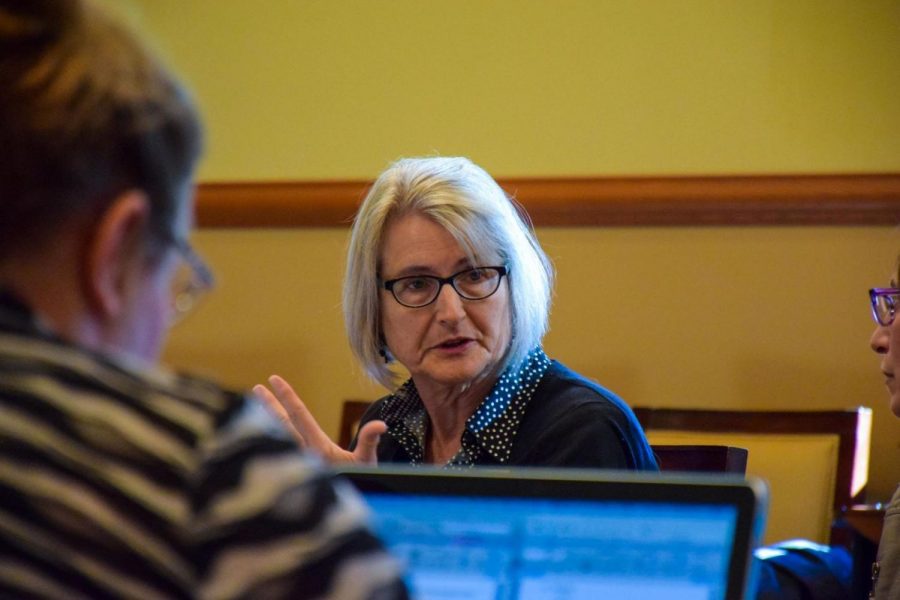Presidential Commission on Persons with Disabilities discuss the importance of people-first language
October 21, 2018
DeKALB — The Presidential Commission on Persons with Disabilities [PCPD] held its monthly meeting Thursday in Altgeld Hall, where they discussed appropriate word usage when addressing a person with a disability and syllabi reminders for faculty.
PCPD’s objective is to inform NIU President Lisa Freeman on issues concerning to people with disabilities, according to their website. The commission works with students from Disability Ally & Advocacy Association [DALLAS] and Active Minds to improve the climate of NIU’s campus for disabled students through monthly meetings from 3 to 4:30 p.m., according to their website.
The commission discussed how to interact with individuals with a disability, such as by using people-first language.
People-first language aims to speak respectfully about individuals with disabilities by stating the person first, then the disability, according to a document created by the Centers for Disease Control and Prevention.
Examples of applying people-first language include phrases like “a person with” or “a person who has,” rather than “the disabled” or “the blind.”
“It’s important that we ask people how they would like to be addressed instead of just assuming,” DALLAS Secretary Emma Falk said. “People with disabilities should be able to take charge of their own identity.”
During the meeting, members addressed problems with the Disability Resource Center [DRC], including their staffing of only two resource counselors.
“There are currently 1,000 students registered using our facility, leaving each counselor working with 500 students,” DRC Director Debra Miller said. “The Best Practice Average suggests each counselor having 89 students.”
This leaves 411 students over the recommended, making it hard for counselors to closely engage with students.
PCPD member Cassandra Kamp, who is also deputy speaker of the Student Association Senate, said having only two resource counselors assisting students is concerning.
“There are five job openings currently in the DRC, and that’s worrying because that means there aren’t as many resources that should be available to these students,” Kamp said.
The commission went on to discuss how professors don’t always provide syllabi that are accessible to everyone, especially online versions.
Technology Accessibility Officer Katy Whitelaw said online syllabi aren’t convenient to everyone, especially visually impaired students who use screen readers.
Whitelaw said screen readers aren’t able to pick up on the words using irregular fonts other than the suggested font when opening a document. She also said using tables is more helpful than continuously pressing the tab button to create columns because screen readers will have an easier time picking up on tables.
The commission said it wants to remind faculty to continue to include the accommodations statement in their syllabi, especially within the graduate courses. The commision plans on sending out a letter every semester reminding faculty of the statement like it has done in the past.
“Meetings like this bring awareness and attention to problems that need to be solved within the disabled community,” DALLAS President Aliza Wyrostek said.







